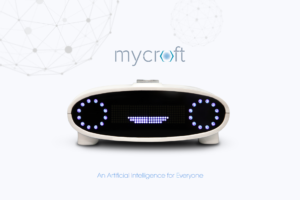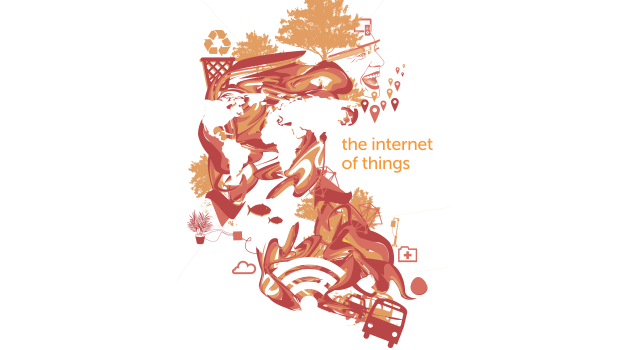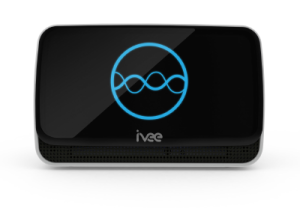Brilliant! Crowd-funded (even better!) Mycroft brings the rich potential of open-source to the growing field of digital home assistants. I suspect it won’t be long until it claims a major part of the field, because the Mycroft platform can evolve and grow exponentially by capitalizing on the contributions of many, many people, not unlike the way IFTTT has with its crowd-sourced smart home “recipes.”
According to a fascinating ZD Net interview with its developer, Joshua Montgomery, his motivation was not profit per se, but to create a general AI intelligence system that would transform a start-up space he was re-developing:
“He wanted to create the type of artificial intelligence platform that ‘if you spoke to it when you walked in the room, it could control the music, control the lights, the doors’ and more.”

Mycroft
Montgomery wanted to do this through an open-source voice control system but for there wasn’t an open source equivalent to Siri or Alexa. After building the natural language, open-source AI system to fill that need (tag line, “An Artificial Intelligence for Everyone”) he decided to build a “reference device” as the reporter terms it (gotta love that techno speak. In other words, a hardware device that could demonstrate the system). That in turn led to a crowdsourced campaign on Kickstarter and Backerkit to fund the home hub, which is based on the old chestnut of the IoT, Raspberry Pi. The result is a squat, cute (looks like a smiley face) unit, with a high-quality speaker.
Most important, when the development team is done with the AI platform, Mycroft will release all of the Mycroft AI code under GPL V3, inviting the open-source community to capitalize and improve on it. That will place Mycroft squarely in the open-source heritage of Linux and Mozilla.
Among other benefits, Mycroft will use natural language processing to activate a wide range of online services, from Netflix to Pandora, as well as control your smart home devices.
Mycroft illustrates one of my favorite IoT Essential Truths: we need to share data, not hoard it. I don’t care how brilliant your engineers are: they are only a tiny percentage of the world population, with only a limited amount of personal experience (especially if they’re callow millennials) and interests. When you go open source and throw your data open to the world, the progress will be greater as will be the benefits — to you and humanity.


